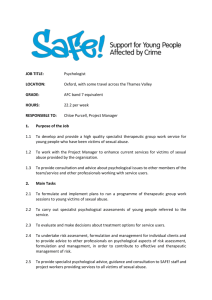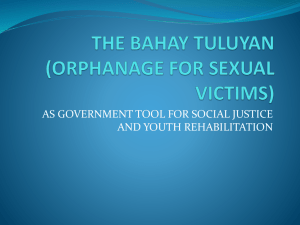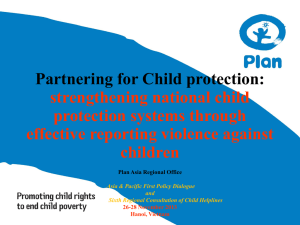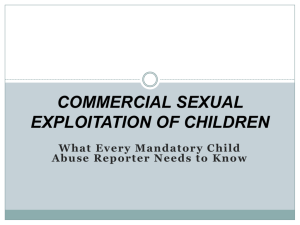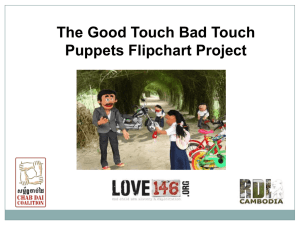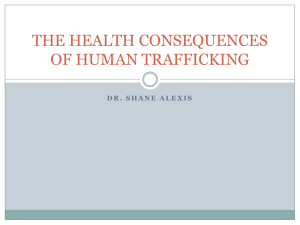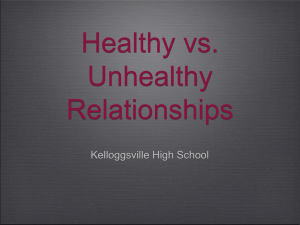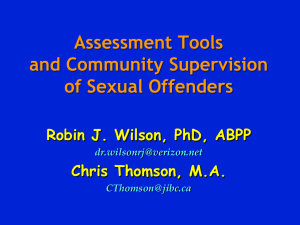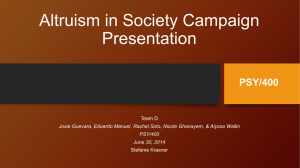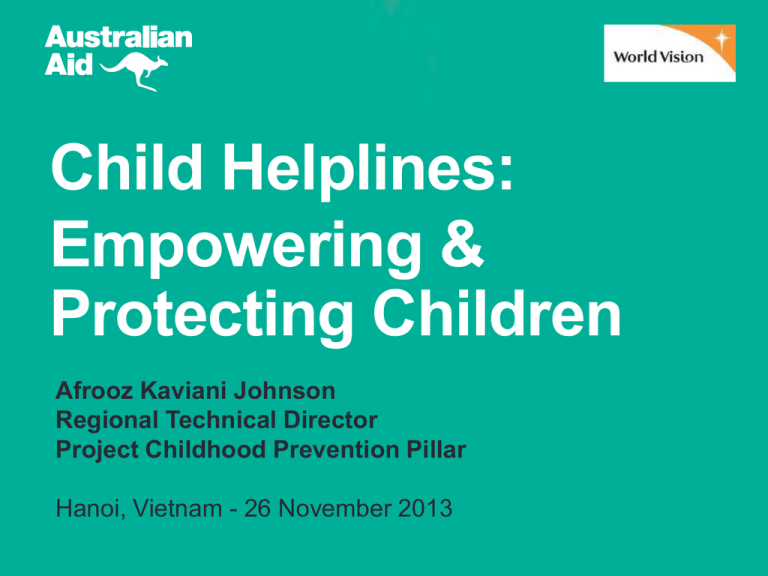
Child Helplines:
Empowering &
Protecting Children
Afrooz Kaviani Johnson
Regional Technical Director
Project Childhood Prevention Pillar
Hanoi, Vietnam - 26 November 2013
A program to protect
children from sexual
exploitation in tourism
An initiative of the
Australian Government
Project
Childhood
Implemented by World
Vision (Prevention) and
UNODC / INTERPOL
(Protection)
Operating in Cambodia,
Lao PDR, Thailand and
Vietnam
Key areas of work
1.
2.
3.
4.
5.
Building community resilience
Enhancing national information and communication
mechanisms
Supporting the tourism sector to build a child safe
environment
Technical assistance to government
Coordination, cooperation, research and
communications
Our approach
Child sexual abuse – the facts
1. Child sexual abuse is a global problem.
2. Girls and boys can be victims of abuse.
3. Children usually know their abuser.
4. Abusers can befriend victims and their families.
5. Children don’t always speak up about abuse.
6. Child sexual abuse is against the law.
7. All children have the right to protection.
Findings from communities
• Limited understanding about ‘sexual abuse’
(penetrative rape only)
• Limited understanding about who is an
offender (strangers and outsiders,
foreigners)
• Overemphasis on girls’ virginity /
insufficient protection of boys
Findings from communities
• Limited formal education / peers and media have
huge influence (risk of incorrect information)
• Parental resistance to sex education / limited
understanding of risks and participation in
prevention efforts
• Significant use of ICT / anonymity
Educating girls and boys
Educating parents and carers
Educating community duty bearers
Strengthening national helplines
The role of Child Helplines in
preventing child sexual abuse
Who are the victims?
Children:
•
Girls and boys.
•
Aged between 0-18 years old.
•
Any economic bracket – although frequently poor.
•
Any education level – although often little
schooling.
•
Often victims of other forms of abuse and
exploitation.
Who are the victims?
Cases studies and reports of victims of sexual exploitation
have often reported suffering from a lack of support and
guidance, which can push them to run away from home or
migrate unsafely (often to tourism destinations) and
become vulnerable to exploitation
The importance of helplines
• Children can reach out directly, before, during or after
abuse and access confidential advice and information
• Helplines provides the specific intervention to a specific
child at the moment when she or he is most receptive
Partnerships with Child Helplines
• Child Helpline Vietnam
• Child Helpline Cambodia
• Vientiane Youth Centre for Health and Development (Lao
PDR)
For more information:
Email: Afrooz.Kaviani@worldvision.com.au
Website: www.childsafetourism.org
Facebook: www.facebook.com/childsafetourism
twitter: @childsafetravel



